Thinking of Moving Overseas?
As more and more boomers reach retirement age, the age-old question of where to live out their golden years comes into play. Every year, a growing number of retirees and their spouses are opting to seek warmer climates and inexpensive life-styles abroad. As a result of easy access to flights and a growing internet social network, the world has become much smaller. It is no longer difficult or expensive to stay in touch with family members from anywhere around the world. My wife, Nancy, and I took the plunge this year and retired to Chiangmai, Thailand. This article will describe the pros and cons of moving to this beautiful, historic city that has received so many great reviews over the last few years.
Why Move Abroad?
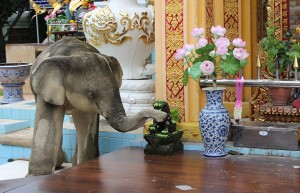 Let’s face it! It takes a lot of money to pay the bills in North America, let alone have any left over for the “fun” things in life. After mortgage or rent, car bills, electricity, heat, clothing, and a million other monthly payments, the average “nine to fiver” rarely has much left at the end of the day to indulge in any luxuries such as dining out, traveling or shopping for that decorative item you have always wanted. By the time retirement rolls around, very few people have managed to save enough to keep up the lifestyle they enjoyed while working.
Let’s face it! It takes a lot of money to pay the bills in North America, let alone have any left over for the “fun” things in life. After mortgage or rent, car bills, electricity, heat, clothing, and a million other monthly payments, the average “nine to fiver” rarely has much left at the end of the day to indulge in any luxuries such as dining out, traveling or shopping for that decorative item you have always wanted. By the time retirement rolls around, very few people have managed to save enough to keep up the lifestyle they enjoyed while working.
According to a recent survey by the Employee Benefit Research Institute, “far fewer people are saving for retirement. The percentage of workers who said they were putting money away for retirement fell to 66% in 2012 from 75% in 2009. People earning less than $35,000 account for the majority of that decline — most likely because they have either lost their jobs or are worried they may be out of work in the future.”
A lower cost of living is the number one reason boomers are searching for alternative places to retire. Others are looking for a simpler lifestyle, a return to the friendlier days they remember from their past, a warmer climate, and a country where people are happier and more laid back on a daily basis. With a little research and preparation, many of these goals can be realized in Chiangmai, the second largest city in Thailand.
Financial Requirements
The financial requirements to obtain a Retirement Visa for Thailand are pretty simple. There are many more detailed explanations of these requirements on other sites but, to make a long story short, you need to be fifty or older, and have an annual income of 800,000 baht. This income can be in the form of savings in a local Thai bank account, a monthly pension, or a combination of both. For a married couple, this is the total requirement; it is not necessary for each spouse to fulfil the financial obligation. Each year, the visa must be renewed but as long as the requirements are still at hand, that is not a problem.
Other countries have less stringent requirements; some have more. One financial negative aspect of retiring in Thailand is that you are not allowed to work. There are loopholes to this requirement but it is better to be safe than sorry. If you try to get around this law and are discovered, you can be fined or deported. It is possible to start a business or make money in other ways, but this requires a different visa and falls under a different set of regulations.
[stextbox id=”info” caption=”Who Would Have Thought?”]For all you North Americans out there, it is very easy to convert daily expenses in baht to monthly expenses in dollars. A month equals thirty days, a dollar equals thirty baht, give or take a little. So if you spend 500 baht a day on food, this will equate to about $500 per month. I don’t know why I didn’t figure this out earlier, especially given the fact that I taught math for many years before retiring here.
This makes it very easy to budget on a daily basis. If you can only spend “x” dollars per month on something, then you know that that will equate to “x” baht per day. How easy is that?[/stextbox]
Cost of Living
Chiangmai can be an inexpensive place to live but only if you are prepared to live your daily life more as a local resident and less as a foreigner! After living in China for the last six years, this was not a problem for us. We have been eating street food, shopping at the local markets and living a pretty simple lifestyle (away from work) for quite awhile now.
Rent
Anyone moving to Chiangmai should rent when they first arrive. The basic choices are apartments, condos or houses. To this day, I still am not sure when an apartment becomes known as a condo, but I am sure others will know the answer to this! For most retirees, the decision boils down to choosing a condo or a house when they first arrive. Looking around at the various real estate pages for Chiangmai soon uncovers the fact that you tend to get more bang for your buck by renting a house but there are pros and cons for each.
Houses
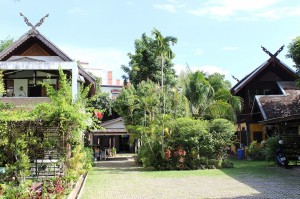 If you want to immerse yourself in the local culture and pay very little rent for a relatively large space, then a small house in a Thai neighbourhood is a good way to go. You can find a nice small house for under $300-400 per month. However, nobody would recommend doing this blindly online without seeing it first. Are there crowing roosters or barking dogs next door? Does the neighbour stay up until the wee hours of the morning with his boom box or TV cranked to the max? These are questions that can only answer by checking out the neighbourhood yourself or asking around once you arrive. Also, most of these houses are not going to be outfitted with Western kitchens and the appliances you are used to. There may be a microwave and fridge and that will be about it! If this is a possible choice for you, than be sure to stay somewhere temporarily while you look around and decide what the best house is for you.
If you want to immerse yourself in the local culture and pay very little rent for a relatively large space, then a small house in a Thai neighbourhood is a good way to go. You can find a nice small house for under $300-400 per month. However, nobody would recommend doing this blindly online without seeing it first. Are there crowing roosters or barking dogs next door? Does the neighbour stay up until the wee hours of the morning with his boom box or TV cranked to the max? These are questions that can only answer by checking out the neighbourhood yourself or asking around once you arrive. Also, most of these houses are not going to be outfitted with Western kitchens and the appliances you are used to. There may be a microwave and fridge and that will be about it! If this is a possible choice for you, than be sure to stay somewhere temporarily while you look around and decide what the best house is for you.
By paying a bit more, you can find a more western style home and kitchen in one of the many gated communities (moo baan) that are found in and around Chiangmai. Again, these communities can be just as varied as the old-fashioned neighbourhoods with housing styles and prices from the low to the high end of the spectrum. However, those of you looking for a more familiar type of house, with all the comforts of your old home, are more likely to find it in one of these communities. There also may be a pool and clubhouse included. But remember you will be paying for what you get and monthly rents could be as much as $2000.
We chose one of four traditional Thai houses on a family owned property. Two are lived in by family members; the other two are rented out. This was a very unusual situation we stumbled into through a connection in the city!
Condos
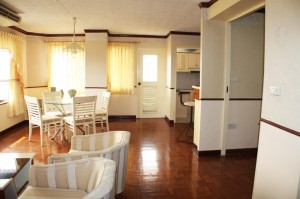 Foreigners are not allowed to purchase property in Thailand but they can buy a condo. This, along with the convenience of living in a condo, is why many westerners opt for this choice. Unlike a house, it is easy to find a nicely furnished one-bedroom modern condo, complete with kitchen appliances and swimming pool, with a central location for under $500 per month. Larger condos are more difficult to find for a reasonable rent.
Foreigners are not allowed to purchase property in Thailand but they can buy a condo. This, along with the convenience of living in a condo, is why many westerners opt for this choice. Unlike a house, it is easy to find a nicely furnished one-bedroom modern condo, complete with kitchen appliances and swimming pool, with a central location for under $500 per month. Larger condos are more difficult to find for a reasonable rent.
With most condos, internet and television will be easily accessible. For the most part, you won’t need to worry about strange insects crawling in the front door as you do with a house! Often, there will be dishes and cookware included so very little will need to be purchased to begin your new life abroad.
Again, it is best to see them in person before signing any agreement. Online photos can be deceiving!
Food
The daily cost of food in Chiangmai can be very inexpensive if you live like a local resident. Most meals purchased from the street-side vendors are 30-40 baht. That equates to about a buck in North American terms. I suppose if you ate out every night at one of these places, you could live on next to nothing in terms of monthly food bills. In addition to that, you really wouldn’t need to set up a working kitchen. There are people who do that and love it! However, I don’t plan on living out my retirement with such a little amount of variety in my life!
It can still be very inexpensive on a monthly basis if you shop at the local markets. We are purchasing almost all our fruit and vegetables at the market across the street but still relying on the local grocery stores such as Tops and Tesco for sterile, packaged meat. It would be cheaper to buy meat on the street but I still cannot bring myself to purchase pork that has been sitting in the sun uncovered all day, even if it is laid out on a bed of melting ice cubes!
By shopping locally, balancing home-cooking with eating on the street, and the occasional foray into an inexpensive restaurant, the cost of food can easily be kept below $300-400 per month. As soon as you begin to regularly spend money on booze, western restaurants and the same kind of food you are used to buying, this monthly cost will soon mushroom to the same levels as the average North American budget. In fact, the biggest downfall of retirees living in Thailand is the money they spend hanging out at the local street-side bars!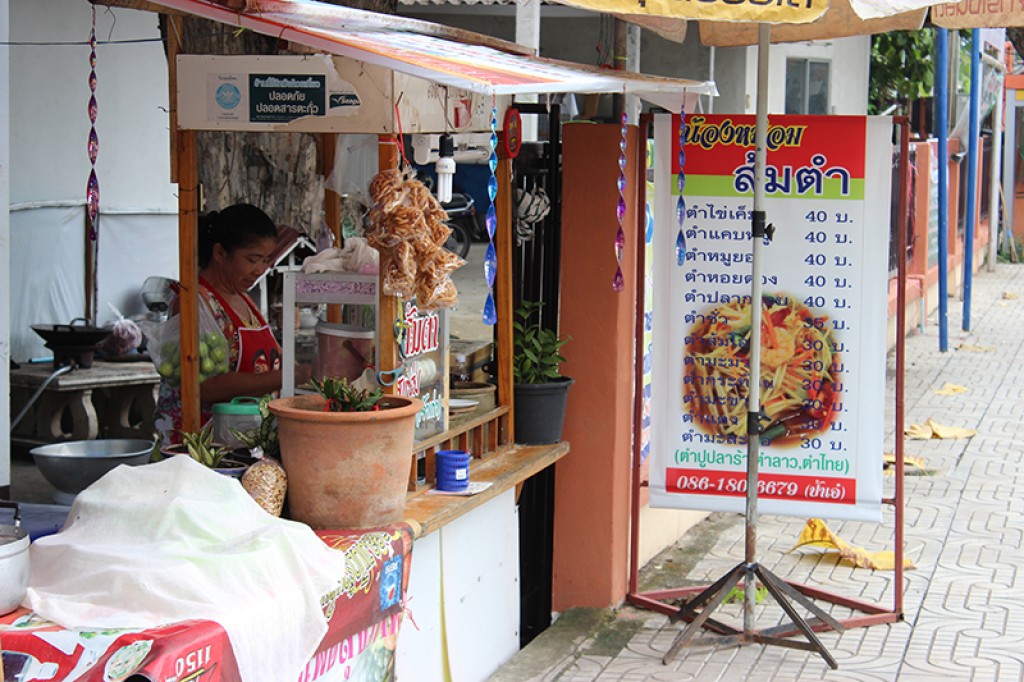
Transportation
It is possible to survive without some form of transportation in Chiangmai but if you want to explore the city on a regular basis or take some trips into the countryside, a vehicle of some sort is necessary. Red truck taxis (songtaews) are available everywhere and should not cost more than 30 baht for most destinations within the city. Taxis and Tuk Tuks are more expensive but will take you anywhere you want to go for a price!
The vehicle of choice in Chiangmai is the scooter, as is apparent the moment you step foot into the city. They allow you to get around very efficiently since it is unnecessary to stay in the traffic. Having said that, be forewarned that Thailand is one of the most dangerous places to drive in the world, and most accidents involve two-wheeled vehicles of one sort or another. Being an experienced motorcyclist with many thousands of kilometres under my belt, I can safely say that I would not drive here until I took some sort of proper motorcycle course in my own country and practiced somewhere other than in the city itself.
Arriving anywhere in Asia, jumping on a scooter and heading out into the craziness is only asking for trouble. I spent a few months surveying the traffic in China by driving around in taxis before I finally invested in a motorcycle. And that was after many years of city driving in North America.
Most used good-quality scooters, such as the Honda Wave, will set you back around $1000. You will obviously pay more for a new one. Driving licenses for both cars and motorcycles are easy to obtain, and fairly inexpensive, whether you have a current driving license or not from your home country.
Healthcare
Thailand is renowned for its great hospitals and wonderful dental clinics. They match, or surpass, anything available in the western world as far as quality of care and cleanliness are concerned. As a retiree, healthcare is an important priority. There are numerous health plans available in Thailand and it would be beyond the scope of this article to go into the details of them all. Suffice it to say that healthcare is very affordable, more so if you are beginning a plan before you reach the age of 60. It does become more difficult and more expensive after that point.
It is easy to walk in off the street and see a doctor for a very small fee. It is not uncommon for a visit with a specialist to cost less than $30. Obtaining an MRI or CAT scan is much cheaper and accessible than in North America. Usually, either of these can be booked the same day you make the request or very soon after. A full bastion of medical tests that include information on everything that is possible to know about your body and its systems will cost less than $500. Most dental procedures will be a fraction of the cost that would be incurred in the western countries. Add to this the abundance and accessibility of inexpensive massages, and you have a recipe that is bound to please most retirees.
Everything else!
I have touched on some of the priorities of retirement in this article. Other than the main points that I have mentioned above, Chiangmai offers a wealth of other reasons to visit or retire here. The people are friendly and welcoming, there are many opportunities for outdoor adventures, the weather is great year-round, and there is a laid back attitude that is easy to become very used to.
Chiangmai is not the end-all and be-all. It does get excruciatingly hot in the spring, rainy in the summer, and smoggy for a couple of months during the winter as the rice fields are being burned. It is a tourist town and that can drive some people crazy. Those who have been here for years whine about the increase in development, along with the bumper-to-bumper traffic in the centre of town, and long for a return to the sleepy days of the past. But it is difficult to find a place that is perfect in all respects. All you can ask for is a location that fits your needs for the present. Staying mobile allows you to move to another city or country if circumstances change.
For now, we have chosen this wonderful place as our retirement home. Only time will tell if we will become jaded over the next few years. We think the pros outweigh the cons, and plan on staying here for the foreseeable future. We have fallen in love with Asia during our last few years in China and now in Thailand. The energy, the food, the daily bombardment of the senses with the smells, sounds, and sights of the neighbourhood, the attitude of the people…all combine to produce a wonderful environment for a great lifestyle.

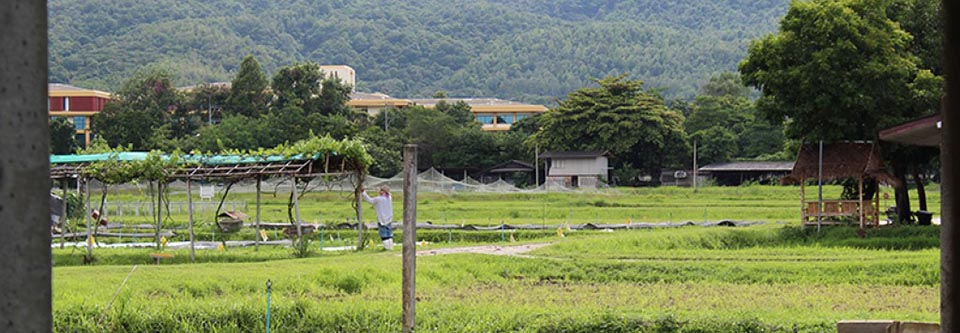
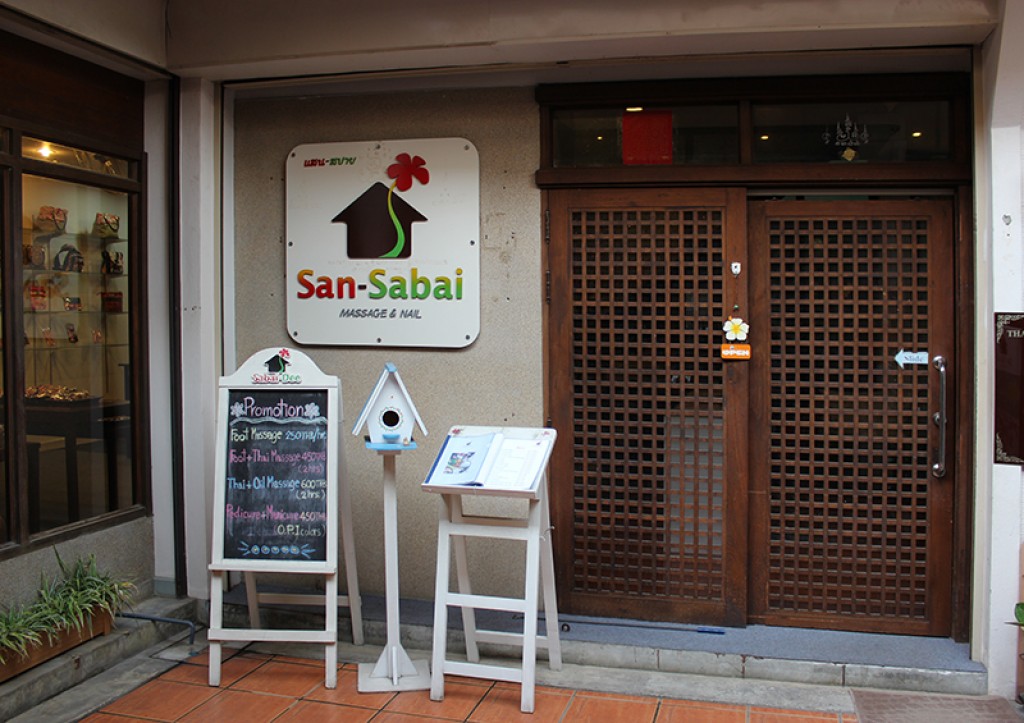
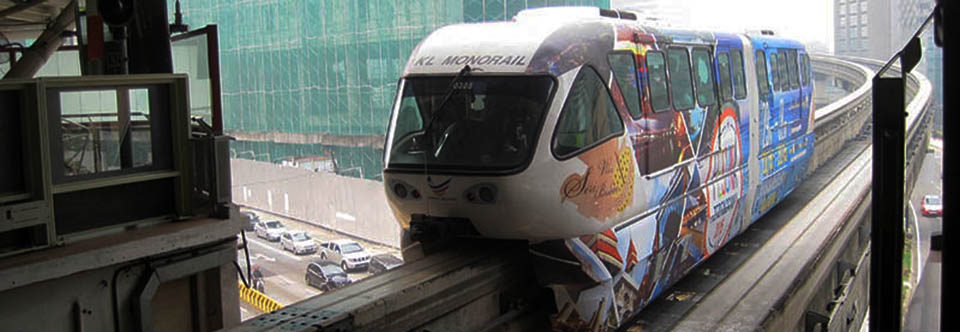

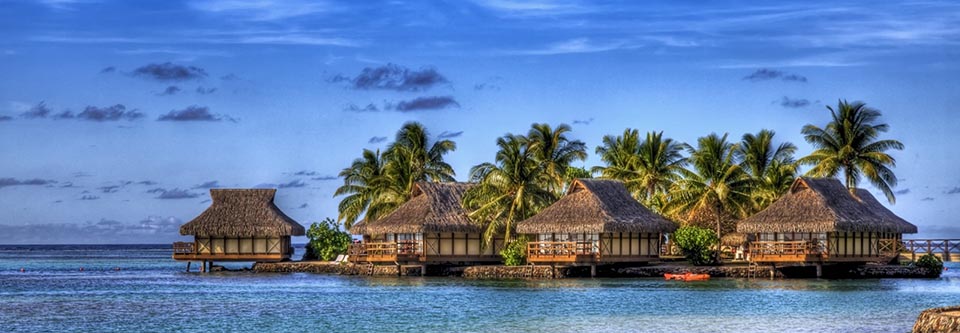
This article is really interesting. Are you still living in Chiang Mai at the same address? We are planning a 12 month stint in 2017.
Regards.
Thanks for dropping by my site. As much as we love Thailand, we have recently moved from Chiang Mai for various reasons. I accepted a short-term position in China so we are back here for a couple more months. Then we are planning to head to South America to continue our adventures. I am sure you will love CM! We ended up moving to Doi Ping Mansion, a great friendly condo complex with a good mixture of locals and foreigners. If you are looking for a condo in the city, I would highly recommend it.